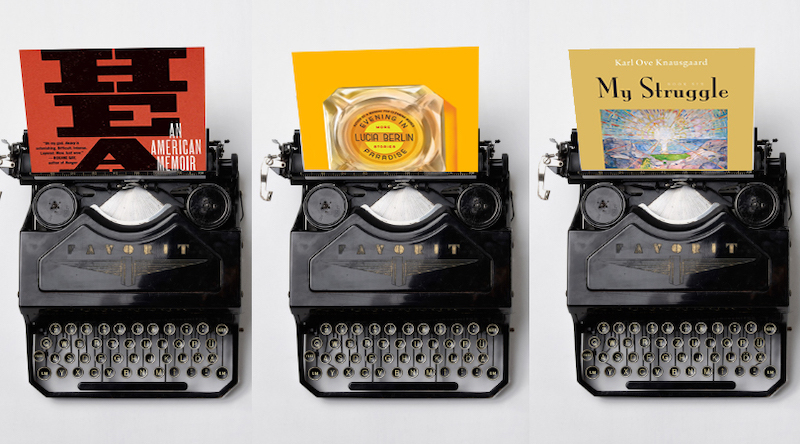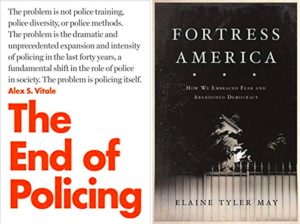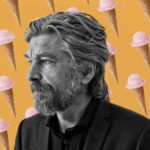
In 2018, more than 900 best-books-of the-year lists have appeared in everything from The New York Times to Bill Gates’s personal blog. But as far as I can tell, no one has ever celebrated book critics in the same way. And why not? Criticism is literature. Some of my favorite nonfiction books of the century so far—They Can’t Kill Us Until They Kill Us, The First Collection of Criticism by a Living Female Rock Critic, and the Elizabeth Hardwick omnibus from NYRB Classics—are collections of cultural criticism.
Writing about books is just as difficult and engaging as any other genre, and just as worthy of annual superlatives. With that in mind, here are my 10 favorite book reviews of 2018.
*
Parul Sehgal on Sjón’s CoDex 1962 (The New York Times Book Review)
I almost went with Sehgal’s take on Robert W. Fieseler’s Tinderbox for the way she channels the narrative momentum of an investigative journalist, but it was her conflicted response to Sjón’s trilogy, “a romance, a crime novel and a science fiction story,” that stuck with me most:
“This book is a Norse Arabian Nights. Each section is a honeycomb. Stories are nested in stories and crack open to reveal rumor and anecdote, prose poems, tendrils of myth. This abundance isn’t an empty show of virtuosity but rooted in Sjon’s belief in the power and obligation of old-fashioned storytelling…”
Michael Schaub on Ling Ma’s Severance (NPR)
The great thing about Schaub’s reviews is they feel less like prose and more like having a conversation with Schaub over a plate of Austin barbecue. His review of Ma’s debut (which also happens to be one of my favorite novels of the year) begins with a brilliant connection between post-apocalyptic fiction and personal essays about “Why I’m Leaving New York”:
“Severance is the kind of satire that induces winces rather than laughs, but that doesn’t make it any less entertaining—Ma exhibits an admirable restraint throughout the novel, never giving in to tired clichés or overwrought sermonizing. It’s a stunning, audacious book with a fresh take on both office politics and what the apocalypse might bring: This is the way the world ends, Ma seems to be saying, not with a bang but a memo.”
Gabrielle Bellot on Nafissa Thompson-Spires’ Heads of the Colored People (Los Angeles Review of Books)
Gabrielle Bellot is a national treasure who excels at layering historical context into her criticism. I haven’t read Thompson-Spires’s “metafictional satires, oriented around questions of blackness,” but according to Bellot, they “join a particular tradition of African-American fiction, recalling the sardonic absurdism of Everett’s Erasure and Paul Beatty’s The Sellout.” Just like her essays, Bellot’s review is eloquent and wonderfully discursive:
“The opening story’s incessant hedging about language—meant, in part, to parody, ad nauseam, the almost paranoiac way that our language about identity tends to be policed—also echoes the seemingly half-serious, half-satirical narration of Danzy Senna’s recent novel, New People, in which a light-skinned part-black woman is driven near to madness by her obsession over not appearing ‘black enough.’”
Patricia Lockwood on Lucia Berlin’s Evening in Paradise (London Review of Books)
Lockwood’s memoir Priestdaddy proved the poet is also a gifted writer of creative nonfiction, but for even more proof, see her 6,000-word ode to Lucia Berlin, which begins with an irresistible lede: “There ought to be a cult, really, of teenagers with Lucia Berlin’s books in their back pockets, hair combed into black bouffants, imitating her squint against sunlight.”

Mychal Denzel Smith on Elaine Tyler May’s Fortress America: How We Embraced Fear and Abandoned Democracy and Alex S. Vitale’s The End of Policing (The New Republic)
Reviewing multiple books at once is always challenging, but Smith cleverly connects these two with a recurring phrase from The Wire,“natural police”:
“It is meant as the highest form of praise: The characters Lester Freamon and Jimmy McNulty, portrayed as detective-work savants, possess an innate curiosity that helps with complicated problem-solving, as well as a tenacious relationship to truth-finding, and an easy way with people. If this is what it is to be ‘natural police,’ we are back at the idea that police are inherently virtuous, even as the show constantly dug into the ways in which they were not. Calling someone “natural police” implies that policing is itself natural, and necessary, when it is anything but.”
Charles Finch on Karl Ove Knausgaard’s My Struggle: Volume 6 (Slate)
Finch’s reviews always make me smile, especially when he has a bone to pick. Despite enjoying Knausgaard’s first three volumes with an emotion “close to the experience of grace,” Finch pulls no punches in his assessment of the sixth:
“What [Knausgaard] has allowed himself is an absolute orgy of interpolation, of style, of insight (“insight”), as if he has expressly set out to recant the choices that made the prior installments of My Struggle unique. The trouble is that he seemingly hasn’t also recanted his freehanded method of composition—instead, he has turned it loose on the Holocaust, a subject that should demand of a writer heroic rigor, heroic precision.”
Hanif Abdurraqib on Kiese Laymon’s Heavy (4 Columns)
When my students ask how to write better criticism, I often point them in the direction of music critics—particularly Midwestern ones like Jessica Hopper, Britt Julious, and Hanif Abdurraqib. In this review, Abdurraqib takes one of 2018’s landmark memoirs and connects it to the present moment”
“We are in a time of hollow platitudes, scratched on white posterboards. Things such as ‘Love Wins’ pepper the sky during protests, but few ask when love alone has won anything that has felt like prolonged justice. What resonates most sharply in Heavy is how Laymon’s love does not resolve itself. The book ends with Laymon apologizing to his mother for all he’s written, and all he’s brought to light. ‘I wanted to write a lie. You wanted to read a lie,’ is a sentiment expressed both at the start of the book and start of the final paragraph. There’s an underlying argument here: that we’ve arrived at the point we have as a country in part because of lies we’ve told ourselves about what America means.”
Kathleen Rooney on Samuel Park’s The Caregiver (Chicago Tribune)
How do you review a book written while the author was dying? If you’re Kathleen Rooney, you do it with grace:
“The book—though an absorbing and well-crafted work of fiction capable of standing on its own, without the support of biography—is almost impossible to consider independently of the knowledge of where its author’s life overlaps with his art.”
Nathan Goldman on Clarice Lispector’s The Chandelier (The Nation)
I enjoyed everyone’s reactions to Lispector’s “most difficult” novel, but Goldman’s was probably my favorite. He cracks the novel open by bringing in additional texts, including the book largely responsible for our current Lispectorean revival, Benjamin Moser’s Why This World: A Biography of Clarice Lispector:
“At the core of Lispector’s lifelong project is the tension between language’s profound potential and its inability to reach the vital realm of the unspeakable. The Chandelier alludes to this conflict by means of Virgínia’s other unusual habit: fashioning figurines from clay. She is enamored of her material, the ‘white, supple, sticky, cold’ clay she sources from the riverbank, the location of her primordial secret. The clay, she thinks, is ‘a clear and tender material from which she could shape a world.’ And what a world it is…”
Ilana Masad on Jill Lepore’s These Truths: A History of the United States (The Paris Review)
I love it when book critics bring their personal lives into their evaluation of a text, since readers inevitably do the same thing. In this review, Masad tackles “a nine-hundred-page-plus tome” by interrogating her own thinking about the United States, “a country I was born in and soon after left”:
“I knew about the terrible legacy of slavery, of the millions of human beings forced onto ships, across oceans, onto land, where they were treated horribly, worked to death, and yet survived, generation after generation. But there was a lot more that I didn’t know or that I had understood incorrectly. I viewed history as a straight line, a collection of clearly defined and connected dots. I saw it as inevitable, maybe self-evident.”
“It isn’t.”


